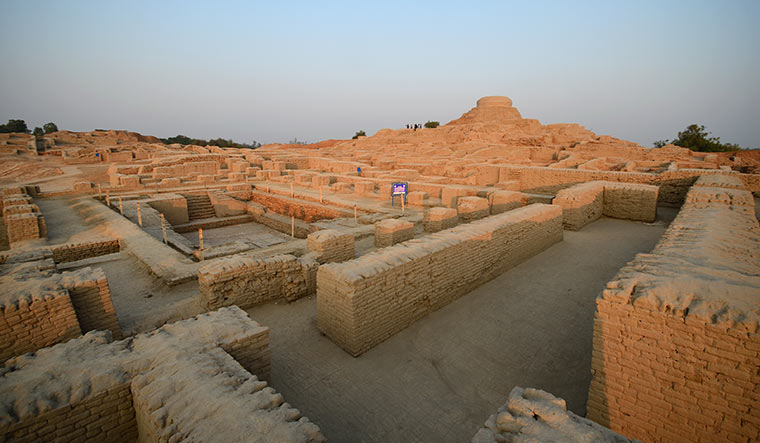UNLIKE ANCIENT civilisations such as Mesopotamia and Egypt, the Indus Valley Civilisation (IVC) had no signs of imperial authority like palaces or big buildings. The IVC, which flourished between 6000 BCE to 1300 BCE, was double the size of other developed civilisations of its time. So, how did the IVC set up and govern very well-organised cities?
There is archaeological evidence pointing to the governing system in cities being democratic. The Harappans created a network of streets, tracks and drainage systems, and infrastructure like granaries, public baths and irrigation systems were built for the welfare of the people. The architecture indicates a hierarchy―priests or merchants stayed in the citadel area, while common people were in the outer area. In the absence of structures indicating the existence of a kingdom, archaeologists say the IVC was a nation or empire governed by peaceful methods rather than by force. It also had trade links with other civilisations.
Also read
- Independence Day 2023: Key points from PM Modi's speech
- 'Country is with Manipur': PM Modi in I-Day speech
- PM Modi greets citizens on Independence Day
- I-Day special: The fascinating history of India's ancient democracies
- What history tells us about self-governance in ancient Tamil Nadu
- Ancient Buddhista sanghas: From dhamma to democracy
According to archaeologist Vasant Shinde, the Harappans likely introduced the panchayat system of democracy. DNA testings in Rakhigarhi show no links to steppe pastoralists and Iranians, but they reveal similarities with present-day south Asians.
Since there is cultural uniformity in large tracts of excavated sites from Mohenjo-daro in Pakistan to Dholavira and Lothal in Gujarat, it is possible that there was an organisation for political or administrative control. A remarkable feature has been the discovery of weight stones and seals, which point to a civic authority that maintained rule of law.
It has been 100 years since the IVC was discovered. New excavations, climate studies and discoveries continue to add to our knowledge of a well-formed proto-democracy.


